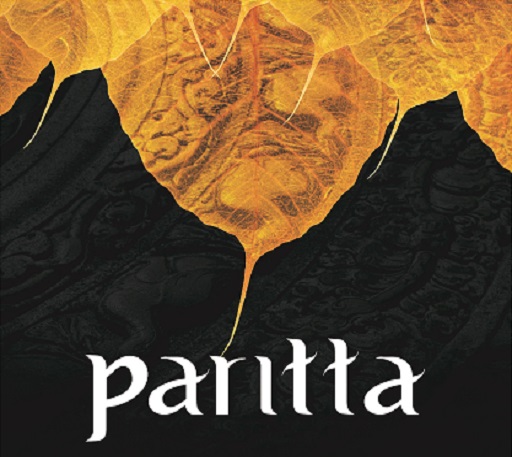No. 390.
MAYHAKA-JĀTAKA.
[299] “Did we joy,” etc.—The Master told this while dwelling in Jetavana, of a stranger merchant. There was in Sāvatthi a stranger merchant, rich and of great substance: he did not enjoy his wealth himself nor give it to others: if choice food of fine flavours was served he would not eat it, eating only broth of
p. 187
rice-dust with sour gruel; if silken clothes perfumed with incense were brought him he had them removed, and wore clothes of coarse hair-cloth for sugar; if a chariot adorned with jewels and gold and drawn by high-bred horses were brought him, he had it taken away and went in a broken-down old chariot with a parasol of leaves overhead. All his life he did nothing with gifts or the other merits, and when he died he was born in the hell Roruva. His substance was heirless: and the king’s men carried it into the palace in seven days and nights. When it was carried in, the king went after breakfast to Jetavana, and saluted the Master. When he was asked why lie did not wait regularly on Buddha, he answered, “Lord, a stranger merchant has died at Sāvatthi: seven days have been spent in carrying his wealth, to which he left no heir, into my house: but though he had all that wealth he neither enjoyed it himself nor gave it to others: his wealth was like lotus-tanks guarded by demons. One day he fell into the jaws of death after refusing to enjoy the flavour of choice meats and the like. Now why did that selfish and undeserving man gain all that wealth, and for what reason did he not incline his thoughts to the enjoyment of it?” This was the question he put to the Master. “Great king, the reason why he gained his wealth and yet did not enjoy it, was this,” and so at his request the Master told a tale of old times.
Once upon a time when Brahmadatta was king in Benares, there was an unbelieving selfish merchant in Benares: he gave nothing to any one, he provided for no one. One day going to wait on the king he saw a paccekabuddha, named Tagarasikhi, begging, and saluting him he asked, “Sir, have you got alms?” The paccekabuddha said, “Am I not begging, merchant?” [300] The merchant gave orders to his man, “Go, take him to my house, set him on my seat and give him his bowl-full of the food prepared for me.” The man took him to the house, set him down, and told the merchant’s wife: she gave him his bowl full of food of excellent flavours. He taking the food and leaving the house went along the street. The merchant, returning from court, saw him and saluting asked him if he had got food. “I have, merchant.” The merchant, looking at his bowl, could not reconcile his will to it, but thinking, “Had my slaves or work-people eaten this food of mine they would have done me hard service: alas, it is a loss for me!” and he could not make the after-thought perfect. Now giving is rich in fruit only to one who can make the three thoughts perfect:—
Did we joy to feel the wish to give,
Give the gift, and give it cheerfully,
Ne’er regret the giving while we live,
Children born of us would never die.
Joy before the bounty’s given, giving cheerfully,
Pleasure at the thought thereafter, that is perfect charity.
So the stranger merchant gained much wealth, by reason of his giving alms to Tagarasikhi, but he could not enjoy his wealth because he could not make his after-thought pure. “Lord, why did he have no son?” The Master said, “O king, this was the cause of his having no son”: and so at his request he told a tale of old.
Once upon a time when Brahmadatta was reigning in Benares, the Bodhisatta was born in a merchant’s family worth eighty crores. When he grew up, at his parents’ death he provided for his younger brother and carried on the house: he made an alms-chamber at the house-door and lived as a householder giving much in alms. One son was born to him; and when the son could walk on his feet, he saw the misery of desires and the blessing of renunciation, so handing over all his substance [301] together with his wife and child to his younger brother, he exhorted him
p. 188
to continue almsgiving with diligence; then he became an ascetic, and gaining the Faculties and Attainments he dwelt in the Himālaya. The younger brother took that one son: but seeing him grow up he thought, “If my brother’s son lives, the estate will be divided into two parts, I will kill my brother’s son.” So one day, sinking him in a river, he killed him. After he had bathed and come home, his brother’s wife asked him, “Where is my boy?” “He was disporting himself in the river: I looked for him but could not see him.” She wept and said nothing. The Bodhisatta, knowing of this matter, thought, “I will make this business public”; and so going through the air and lighting at Benares in fair raiment under and upper, he stood at the door: not seeing the alms-chamber, he thought, “That wicked man has destroyed the chamber.” The younger brother, hearing of his coming, came and saluted the Bodhisatta and taking him up to the roof gave him good food to eat. And when the meal was over, seated for friendly talk he said, “My son does not appear: where is he?” “Dead, my lord.” “In what way?” “At a bathing place: but I do not know the exact way.” “Not know, thou wicked man! your deed was known to me: did you not kill him in that way? will you be able to keep that wealth when destroyed by kings and others? What difference is there, between you and the Mayha bird?” So the Bodhisatta expounding the law with the ease of a Buddha spoke these stanzas:—
There is a bird called Mayhaka, in mountain cave it lives:
On pipal trees with ripening fruit, “mine,” “mine” the cry it gives.
[302] The other birds, while thus he plains, in flocks about him fly:
They eat the fruit, but still goes on the Mayha’s plaintive cry.
And even so a single man enormous wealth may win,
And yet may not divide it fair between himself and kin.
Not once enjoyment does he reap, of raiment or of food,
Of perfumes or of garlands gay; nor does his kinsfolk good.
“Mine, mine,” he whimpers as he guards his treasures greedily:
But kings, or robbers, or his heirs that wish to see him die
Pillage his wealth: yet still goes on the miser’s plaintive cry.
A wise man, gaining riches great, is helpful to his kin:
’Tis thus he’ll win repute on earth and heaven hereafter win.
[303] So the Great Being expounding to him the law made him renew the alms-giving, and going to the Himālaya pursued meditation without interruption and so went to the Brahmaloka heaven.
After the lesson, the Master said, “So, great king, the stranger merchant had neither son nor daughter for all that time because he killed his brother’s son,” and then he identified the Birth: “The younger brother was the stranger merchant, the elder was myself.”

![[PDF] The book of the Discipline – Vinayapiṭaka – The full 6 Volumes](https://en.namo84000.org/wp-content/uploads/2023/12/The-Book-of-the-Discipline-Vinaya-Pitaka.jpg)


![[En] Guide to Tipitaka](https://en.namo84000.org/wp-content/uploads/2021/10/Kinh-Phat-Quan-trong-2.jpg)